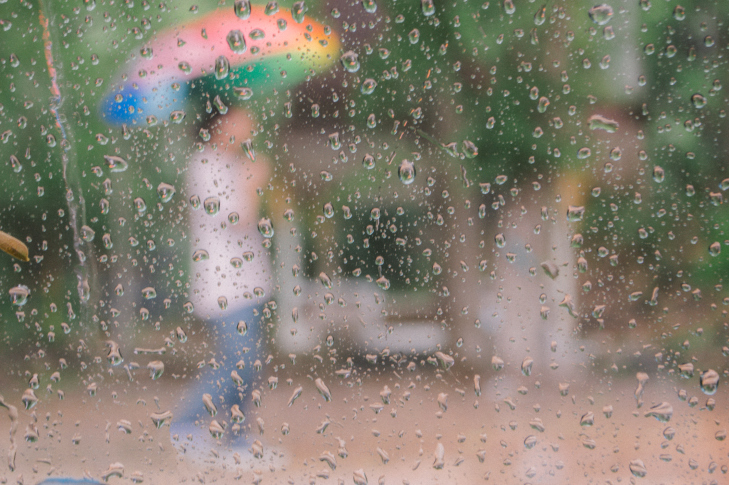 Imagine yourself sitting on a white, sandy beach. The sun is shining; you feel the warmth on your skin. There’s a slight breeze blowing off the nearby water, which keeps you from feeling too hot. You sip on your favorite icy drink. You hear the sound of the waves rolling against the beach and then sliding away again. Laughter can be heard in the distance as children splash and play. You see brightly colored kites zipping through the clear, blue sky. People wave and smile as they walk by. The days feel long as daylight lingers into the evening hours.
Imagine yourself sitting on a white, sandy beach. The sun is shining; you feel the warmth on your skin. There’s a slight breeze blowing off the nearby water, which keeps you from feeling too hot. You sip on your favorite icy drink. You hear the sound of the waves rolling against the beach and then sliding away again. Laughter can be heard in the distance as children splash and play. You see brightly colored kites zipping through the clear, blue sky. People wave and smile as they walk by. The days feel long as daylight lingers into the evening hours.
How do you feel when you imagine this scenario?
Next, imagine yourself walking through a park. The sky is gray and cloudy. The wind blows little sprinkles of rain in your face. It has been at least two weeks since the sun was out, and the days are short. It’s dark when you wake up the morning and dark by the time you sit down to eat dinner. You step in mud puddles that can’t be avoided; your toes feel wet and cold. No one makes eye contact with you because everyone is rushing to get where they’re going before the next storm moves in and the rain returns. You cling to the warm beverage you’re holding, which keeps your hands from freezing. The wind has blown all the leaves from the trees and most of the bushes, it is as though all the color has been drained away. You hear people mutter under their breath as they pass and see them leap hastily into their vehicles in hopes of escaping the chill.
How does this scenario make you feel?
Did you notice any difference between the two or prefer one over the other?
Researchers suggest there is a link between the weather and mood. The weather can be related to a seasonal pattern of depression, sometimes referred to as seasonal affective disorder, or SAD. Although SAD is most common during the winter months and tends to diminish in the spring, SAD occurs in some people during summer months. Researchers suggest summer SAD is rare, occurring in less than 1% of the U.S. population.
Depression with a seasonal pattern can be recognized by a regular occurrence of a major depressive episode that begins and ends around the same time every year. SAD is different than the so-called “winter blues,” which an estimated 10% to 20% of people experience. The seasonal pattern for SAD must be present for at least two years, and a person cannot have had a non-seasonal depressive episode during that time.
Signs to be aware of with SAD include:
- Depressed mood
- Oversleeping
- Increased appetite
- Increased cravings for foods high in carbohydrates
- Increased weight gain
- Decreased energy
- Decreased interest in activities previously enjoyed
There are many thoughts about the causes of SAD, but no definitive source has been identified. SAD has been associated with each of the following:
- Circadian rhythm (the body’s internal, biological clock)
- Serotonin levels (a brain chemical which may be affected by levels of sunlight)
- Genetics
- Geographic location
- Melatonin levels (a body chemical related to mood and sleep patterns)
If you wonder whether SAD may be affecting you, it can help to know there are treatments available to help manage it. Such treatments include the following:
Light Therapy
Sometimes called phototherapy, this method involves daily exposure to high-intensity light through the use of a light therapy box. There are a variety of light therapy boxes available. It is recommended that you speak with your physician to determine which options would be most appropriate for you.
Medication
If symptoms are severe enough and the depressed mood is interfering in daily activities, medication such as antidepressants may be worth exploring.
Counseling
Talk therapy can help identify negative thinking associated with depressed mood and help you learn healthy ways to cope and change negative self-talk. If your physician prescribes medication, combining it with counseling can be an effective treatment option.
Supplements
Some people opt for herbal remedies, such as melatonin or St. John’s wort, to manage symptoms. Be sure to discuss these options with your physician since there is potential for supplements to interfere with prescribed medications.
Yoga or Massage Therapy
These can be additional options that engage your body, mind, and senses.
If you have experienced SAD, what techniques do/did you use to manage it? If you expect that SAD will return at the same time each year, have you found methods that are helpful for preventing it?
Reference:
Flaskerud, J. H. (2012). Seasonal Affective Disorders. Issues in Mental Health Nursing, 33: 266-268.
© Copyright 2015 GoodTherapy.org. All rights reserved. Permission to publish granted by Marjie L. Roddick, MA, NCC, LMHC
The preceding article was solely written by the author named above. Any views and opinions expressed are not necessarily shared by GoodTherapy.org. Questions or concerns about the preceding article can be directed to the author or posted as a comment below.

 11 Ways to Arm Yourself Against SAD
11 Ways to Arm Yourself Against SAD Does Your Mood Change with the Seasons?
Does Your Mood Change with the Seasons? 10 Tips for Beating the Holiday Blues
10 Tips for Beating the Holiday Blues